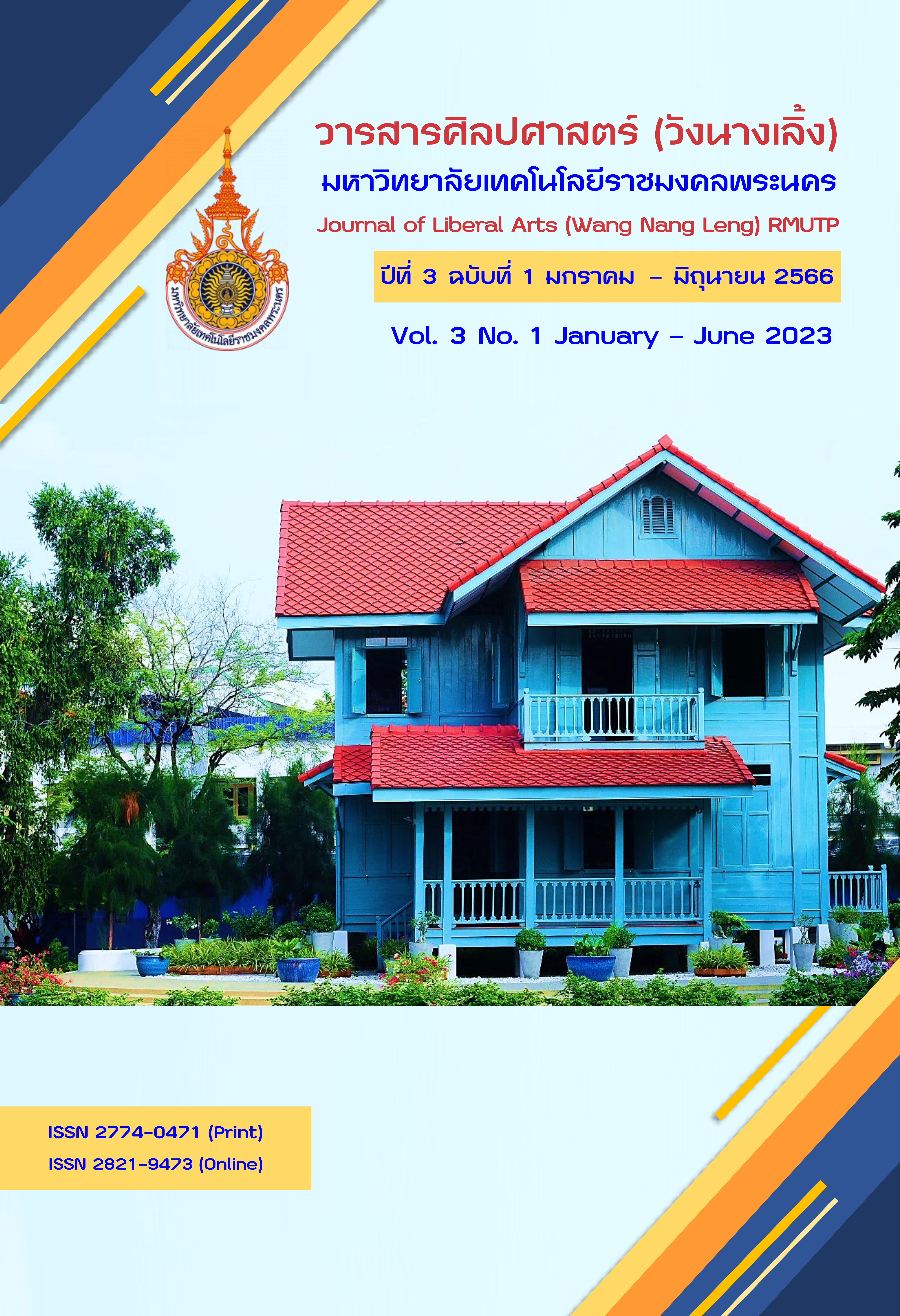Ethical Leadership of School Administrators : A Case Study of Wangdee School Maungsongkhla Songkhla
Keywords:
Ethical leadership, factors Affecting ethical leadershipAbstract
The purpose of this research was to study ethical leadership, the factors influencing ethical leadership, and the community's acceptance of Wangdee School Maungsongkhla Songkhla. This study used a mixed-methods research. The sample consisted of administrators, teachers, school committees and people in the communities around Wangdee School. The statistic used for data analysis was Descriptive Statistic and Inferential Statistic. The research found that 1) the average level of ethical leadership of school administrators was in “Highest” level and correlated to justice and empathy. The reasons of the result were because the administrators were fair, behaved, and took a good care of team in assigning the right man on the right job. 2) the average level of factors affecting ethical leadership of Wangdee school administrators was in “Highest” level. Ethical climate in organization was in “high” level. There was the highest correlation value between organizational ethical climate and organizational ethical culture. The reasons were because administrators created an appropriate ethical atmosphere in the organization as a result the organization has a culture of operation ethical conduct as well. 3) Effect of factors affecting the school administrators’ ethical leadership were as follow: the highest value was organizational ethical culture resulted in the ethical leadership of the school administrators to be empathetic. The reasons were because the administrators paid attention to every aspect to create a good and effective teaching and learning management. 4) The people in the communities around Wangdee School. Having good morals and ethics people in the community brought the opportunity for them to participate in the development of educational institutions and to be proud that Wangdee School is a high quality school with good education management and the school that promotes higher standard, teachers, and students to be able to cope with the changing world.
References
กนกวรรณ บุญเรือง, มนต์นภัส มโนการณ์ และธารณ์ ทองงอก, (2560) ภาวะผู้นำเชิงจริยธรรมของผู้บริหารสถานศึกษาเขตพื้นที่การศึกษาประถมศึกษาลำปาง เขต 3. วารสาร Veridian E-Journal Silpakorn University ฉบับภาษาไทยสาขามนุษยศาสตร์สังคมศาสตร์และศิลปะ. 10(3), 1409-1426.
กันทิมา ชัยอุดม. (2557). ความสัมพันธ์ระหว่างภาวะผู้นำการเปลี่ยนแปลงและพฤติกรรมการบริหารแบบมีส่วนร่วมของผู้บริหารสถานศึกษากับประสิทธิผลของสถานศึกษา สังกัดสำนักงานเขตพื้นที่การศึกษาประถมศึกษาชลบุรี เขต 3. วารสารการศึกษาและการพัฒนาสังคม, 10(1), 23-34
ชุติมา รักษ์บางแหลม. (2559). ภาวะผู้นำเชิงจริยธรรม: หนทางสู่การขับเคลื่อนภาวะผู้นำในสถาบันการศึกษา. วารสารมหาวิทยาลัยนราธิวาสราชนครินทร์, 8(1), 168 – 181.
ธีระ รุญเจริญ. (2553). ความเป็นมืออาชีพในการจัดและบริหารการศึกษายุคปฏิรูปการศึกษา (ฉบับปรับปรงุ) เพื่อปฏิรูปรอบสองและประเมินภายนอกรอบสาม. กรุงเทพฯ: ข้าวฟ่าง.
ผุย รัตนโชโต. (2558). ภาวะผู้นำเชิงจริยธรรมของผู้บริหารสถานศึกษาตามหลักพรหมวิหาร 4 ที่ส่งผลต่อการปฏิบัติงานของครู โรงเรียนสังกัดเทศบาลนครสกลนคร. วิทยานิพนธ์ครุศาสตร์มหาบัณฑิต สาขาวิชาการบริหารการศึกษา, มหาวิทยาลัยนครพนม.
รัตติกรณ์ จงวิศาล. (2556). ภาวะผู้นำ : ทฤษฎีการวิจัยและแนวทางสู่การพัฒนา. พิมพ์ครั้งที่ 2. กรุงเทพฯ : สำนักพิมพ์แห่งจุฬาลงกรณ์มหาวิทยาลัย.
วิเชียร วิทยอดมุ . (2553). ภาวะผู้นํา Leadership. กรุงเทพฯ: ธนธัชการพิมพ์.
สมจิตร อุดม. (2556). การพัฒนาองค์การทางการศึกษา. เอกสารประกอบการสอน. สงขลา : มหาวิทยาลัยทักษิณ.
สุทัด จันทะสินธุ์. (2560). รูปแบบภาวะผู้นำเชิงจริยธรรมแบบบูรณาการของผู้บริหารสถานศึกษา สังกัดสำนักงาน คณะกรรมการการศึกษาขั้นพื้นฐาน. วิทยานิพนธ์ปรัชญาดุษฎีบัณฑิต สาขาวิชาผู้นำทางการศึกษาและการพัฒนาทรัพยากรมนุษย์ มหาวิทยาลัยราชภัฏเชียงใหม่.
สุธาสินี แม้นญาติ. (2554). โมเดลความสัมพันธ์โครงสร้างปัจจัยที่ส่งผลต่อภาวะผู้นำเชิงจริยธรรมของผู้บริหารสถานศึกษา สังกัดกรมส่งเสริมการปกครองท้องถิ่น. วิทยานิพนธ์ปริญญาปรัชญาดุษฎีบัณฑิต มหาวิทยาลัยขอนแก่น.
สุรัตน์ ไชยชมภู. (2557). ภาวะผู้นำเชิงจริยธรรมในการบริหารสถานศึกษา. วารสารการบริหารการศึกษา มหาวิทยาลัยบูรพา, 8(2), 1 – 15
สมชาย เทพแสง,และอภิธีร์ทรงบัณฑิตย์. (2557). ภาวะผู้นำจริยธรรม แนวคิด ทฤษฎีและกรณีศึกษา. กรุงเทพฯ:
ภาควิชาการบริหารการศึกษา คณะศึกษาศาสตร์มหาวิทยาลัยศรีนครินทรวิโรฒ.
อโนชา สิงห์สนั่น. (2558). คุณลักษณะทางชีวสังคมและสภาพแวดล้อมของโรงเรียนที่ส่งผลต่อภาวะผู้นำเชิงจริยธรรมตามหลักพระพุทธศาสนาของผู้บริหารสถานศึกษา สังกัดกรุงเทพมหานคร. ปริญญาการศึกษามหาบัณฑิต สาขาวิชาการบริหารการศึกษา มหาวิทยาลัยศรีนครินทรวิโรฒ.
Glanz, J. (2006). What every principal should know about ethical and spiritual leadership. Thousand Oaks, California: Corwin.
Kocabas, I., & Karakose, T. (2009). Ethics in school administration. African Journal of Business Management, 3(4), 126-130.
Downloads
Published
How to Cite
Issue
Section
License
Copyright (c) 2023 Journal of Liberal Arts (Wang Nang Leng) RMUTP

This work is licensed under a Creative Commons Attribution-NonCommercial-NoDerivatives 4.0 International License.
วารสารศิลปศาสตร์ (วังนางเลิ้ง) มหาวิทยาลัยเทคโนโลยีราชมงคลพระนคร อยู่ภายใต้การอนุญาตของคณะศิลปศาสตร์ มหาวิทยาลัยเทคโนโลยีราชมงคลพระนคร เว้นแต่จะได้รับอนุญาติเป็นอย่างอื่น





